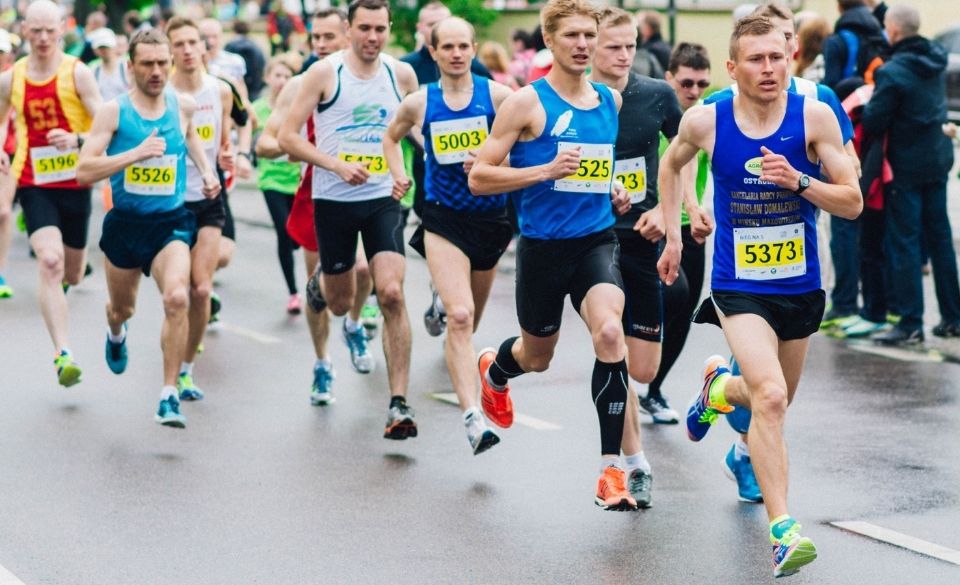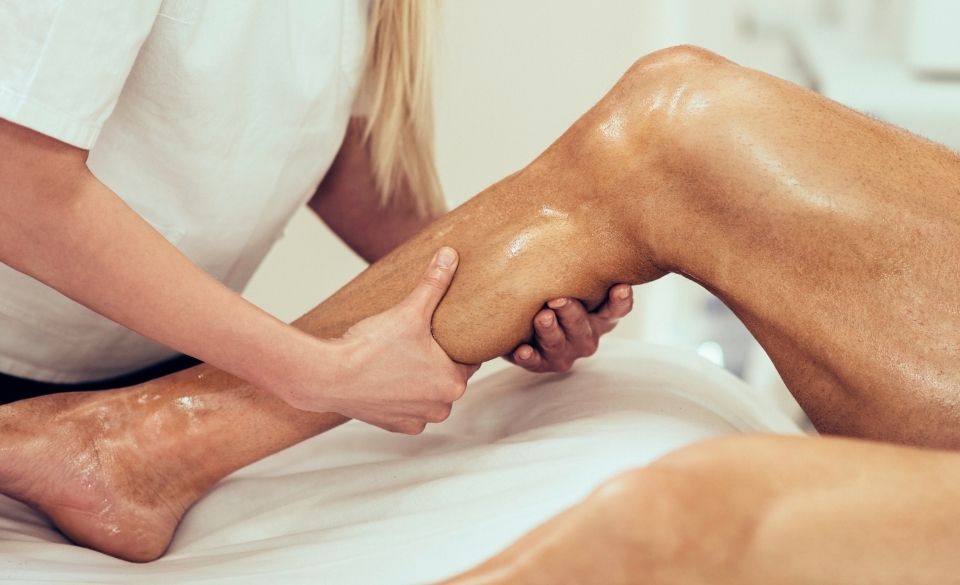
How to Recover From a Marathon? – Marathon Recovery Plan
Page Contents
Recovery after a marathon is nearly as important as your training leading up to a marathon. The faster you recover, the quicker you can get back into training towards your next goal. It can also decrease your chances of injury post-marathon.
Often people jump back into training directly after a marathon and don’t follow a proper post marathon recovery plan and because of this, their subsequent performances stagnate or they start to suffer from overtraining symptoms.
So, how do you recover after a marathon properly?
Today, we are going to explain to you the best and fastest way to recover from a marathon and show you what a marathon recovery plan should look like.
What Happens To My Body When I Run A Marathon?
Running a marathon is not only tough on the mind but extremely tough on the body. This is because almost every physiological system is strained when running a marathon. This includes your muscles, hormones, tendons, and cells.
It doesn’t matter if it is your first marathon, or if you’re an experienced runner, the 26.2 miles places tremendous physical stress on the body. That means everyone will have their physiological systems stressed after running a marathon.
Below is a list of the most common physiological systems affected after a marathon.
Skeletal Muscle
One of the most common symptoms after a marathon is muscle soreness and fatigue. That is because running a marathon induces inflammation and muscle fiber necrosis for up to 14 days post marathon. This is extremely common in the calf muscles and quadriceps. That means it will roughly take 2 weeks for your muscle power and durability to return after the race.
Cell Damage
In the days after your marathon, cellular damage is at its highest. This includes oxidative damage and increased production of creatinine kinase (CK). CK is a marker that indicates damage to myocardial and skeletal tissue. Because of this, there is also an increase in myoglobin levels in the blood stream, which can result in blood being present in your urine.
A recent study found that creatinine kinase (CK) lasted for more than 7 days after finishing a marathon, another study found that myoglobin was present in the blood stream for up to four days post marathon.
The results from both these studies indicate that the body requires at least 6-10 days of recovery post marathon. This typically allows enough time for the body to recover from the cellular damage caused by the 26.2 miles. That means, staying away from running for at least the first 2-3 days. This is why many marathon recovery training plans avoid cross-training for at least the first 3 days after a marathon.
Immune system
After running a marathon your immune system is severely compromised. this means your body is at risk of contracting a cold, virus, or the flu.
One study found that after running a marathon your immune system is compromised for up to three days. It also found that a compromised immune system is a result of overtraining syndrome.
Therefore, it is recommended the first 3 days after a marathon is spent resting as much as possible, as research shows us that our muscle, cellular, and immune system is severely damaged for 3-14 days after the race. So it is recommended during this recovery period that you focus on eating a healthy diet of rich and nutritious foods to keep the immune system strong while it recovers.

How To Recover After Running A Marathon
For most people, the ideal recovery training plan after a marathon lasts around 3 weeks. This gives the physiological and immune systems enough time to properly recover.
Below are some tips to help speed up your recovery after a marathon:
Immediately After The Race
Planning your post-race recovery can be a little difficult to plan, especially if you have traveled to an event. However, there are some basic tips you should follow immediately after finishing your race.
Focus on replacing energy that you have burned during the 26.2 miles. This includes eating carbohydrate-rich foods and foods that are high in protein. If you don’t have quick access to food, replace your post-race meal with a recovery drink until you can have a proper meal.
After you finish the event, make sure you put on some warm clothing. Most probably your body temperature will drop relatively quickly once you have crossed the finish line.
If you start feeling soreness or fatigue in the muscles in the hours ( very common) after the event, head back to your hotel and sit in an ice bath for 15 minutes. The water doesn’t need to be too cold, as the optimal temperate is around 55 degrees Fahrenheit.
Once you get to this point, the next step is to put your feet up and rest for the remainder of the day. Other things during this time than can help include elevating your legs, taking a nap, or even putting on some compression clothing.
Days 1-3 After Marathon
During the first 1-3 days after the marathon, it is recommended that you stay away from any running or cross-training. These first 3 days are the most important in your recovery plan.
Make sure you eat lots of fruits, carbohydrates, and protein. This will help replace your glycogen levels and helps speed up muscle recovery.
Light massage is also recommended. However, it is important to stay away from a deep tissue massage until the muscles have fully recovered from the 26.2 miles.
Days 4-7 After Marathon
If on the fourth day you have no muscle soreness or niggles, you can think about running again. However, it is only recommended that you do one 2-5 mile run at a recovery pace (heart rate zone 1). However, you can start to add in some cross-training as well. Just make sure you keep the intensity low. The most widely recommended cross-training to do a week after a marathon is cycling or swimming, as both are low-impact exercises.
During days 4 to 7, continue to focus on eating a healthy diet. It is also a good time to schedule a deep tissue massage, as the muscles have started to recover.
If you find you still have some lingering muscle soreness, you can try contrast bath therapy. To do this, either use two large trash cans and fill one with hot water and the other with cold water. Spend five minutes in each and repeat 2-3 times. Alternatively, the same can be done in the shower if you have a removable head. By doing this, it helps forces blood in and out of the muscle, which facilitates healing.
Days 7-14 After Marathon
Now is the time you can start thinking about running more frequently. During days 7-14 post-marathon, it is still important to think about your recovery, as you will not yet be 100% recovered from the marathon yet. Because of this, you want to keep your runs short (4-7 miles) and at a low intensity and aim to run not more than 3 to four times during these 7 days.
If you feel like your body has fully recovered from your marathon, you can test the body by doing some high-intensity cross-training. For example, 2-3 minute cycling intervals. This will give you an idea of how well the body has recovered, and give you an insight into whether your heart rate is acting as it should. If you find you cannot raise the heart rate, it’s a sure sign that you still need some more days of recovery.
Final Notes
It is important to ensure you follow a proper recovery protocol after a marathon. That way you can go into your next training cycle fully recovered and motivated. If you don’t let yourself fully recover, you may find that you will need to back off your training relatively quickly in the months after your marathon.
For most people, it will only take two to three weeks of training to be at the same level again. However, it is important not to plan any races for at least 6 weeks after your marathon.
Remember, with patience and a thought-out recovery plan, you will be back into training again in no time.



